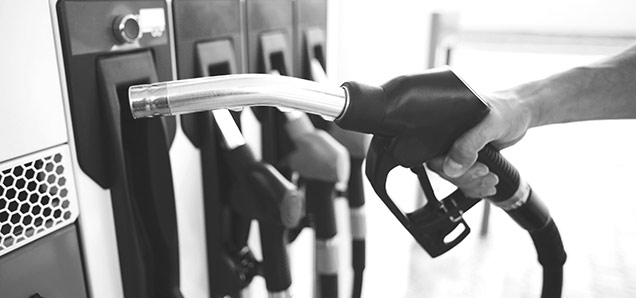Politics at the pumps: Expect higher gas prices
 CREDIT: BIZOO_N/THINKSTOCK
CREDIT: BIZOO_N/THINKSTOCKThe dip in gas prices is about to end, but what's the reasoning behind price fluctuations?
The world of gas prices is a mysterious one. For seemingly no reason, the price will skyrocket for a couple weeks before coming back down to average. The price goes up on the weekends, up during the summer, but it always returns to hover between $1.10 and $1.20 per litre. Doesn’t that seem a little odd?
Meet OPEC. The Organization of Petrol Exporting Countries was founded in 1960 by Iran, Iraq, Kuwait, Saudi Arabia and Venezuela, but it now includes an additional six countries that also produce large quantities of crude oil. OPEC is the group that makes sure that your gas prices don’t get too low.
Companies have spent billions of dollars to develop the most efficient methods possible for sucking every drop of crude oil out of the ground. Unfortunately, extraction is often an environmental nightmare, and the resulting methods can be enormously expensive.
The principle is that if it costs the company $20/barrel to get the crude out of the ground, it needs to sell for at least $60/barrel for them to make a profit. Crude oil production is one of the most profitable industries on the planet, so it stands to reason that it would be manipulated to favour the players within the system.
OPEC is responsible for telling its member countries to scale back oil extraction to limit the amount of crude oil available and drive the price back up.
Business is about supply and demand. Don’t let that deter you from pursuing your studies in business because it gets a lot more complicated than that, but supply and demand isn’t a bad place to start.
The demand for oil is on a fairly constant incline – not many people are trading in their Hummer for a mountain bike just because of gas prices. The threshold of affordable gas seems to be around $1.20.
When it becomes more expensive, people start to scale back their consumption. The primary job of OPEC is to ensure that a balance is met where the least oil possible is sold at the highest possible price.
The worst-case scenario for OPEC and the oil industry in general is a culture that embraces sustainability. The combustion engine is a technology that despite having been improved on for 100 years is still just setting stuff on fire.
New technologies are combining for some revolutionary approaches to building consumer grade electric cars that could eliminate our dependence on fossil fuels. Although eliminating it would require a titanic shift in our current methods of power-generation, that might be for the best in light of the objectively unsustainable nature of the North-American lifestyle.
Our government tries to keep a firm grip on the industries that are within their power to influence, but energy is not one of them. The atrocities that have been committed across the globe to literally fuel our society are well-documented and widely ignored. The price at the pump could never be high enough to pay for them.
Editorial opinions or comments expressed in this online edition of Interrobang newspaper reflect the views of the writer and are not those of the Interrobang or the Fanshawe Student Union. The Interrobang is published weekly by the Fanshawe Student Union at 1001 Fanshawe College Blvd., P.O. Box 7005, London, Ontario, N5Y 5R6 and distributed through the Fanshawe College community. Letters to the editor are welcome. All letters are subject to editing and should be emailed. All letters must be accompanied by contact information. Letters can also be submitted online by clicking here.













